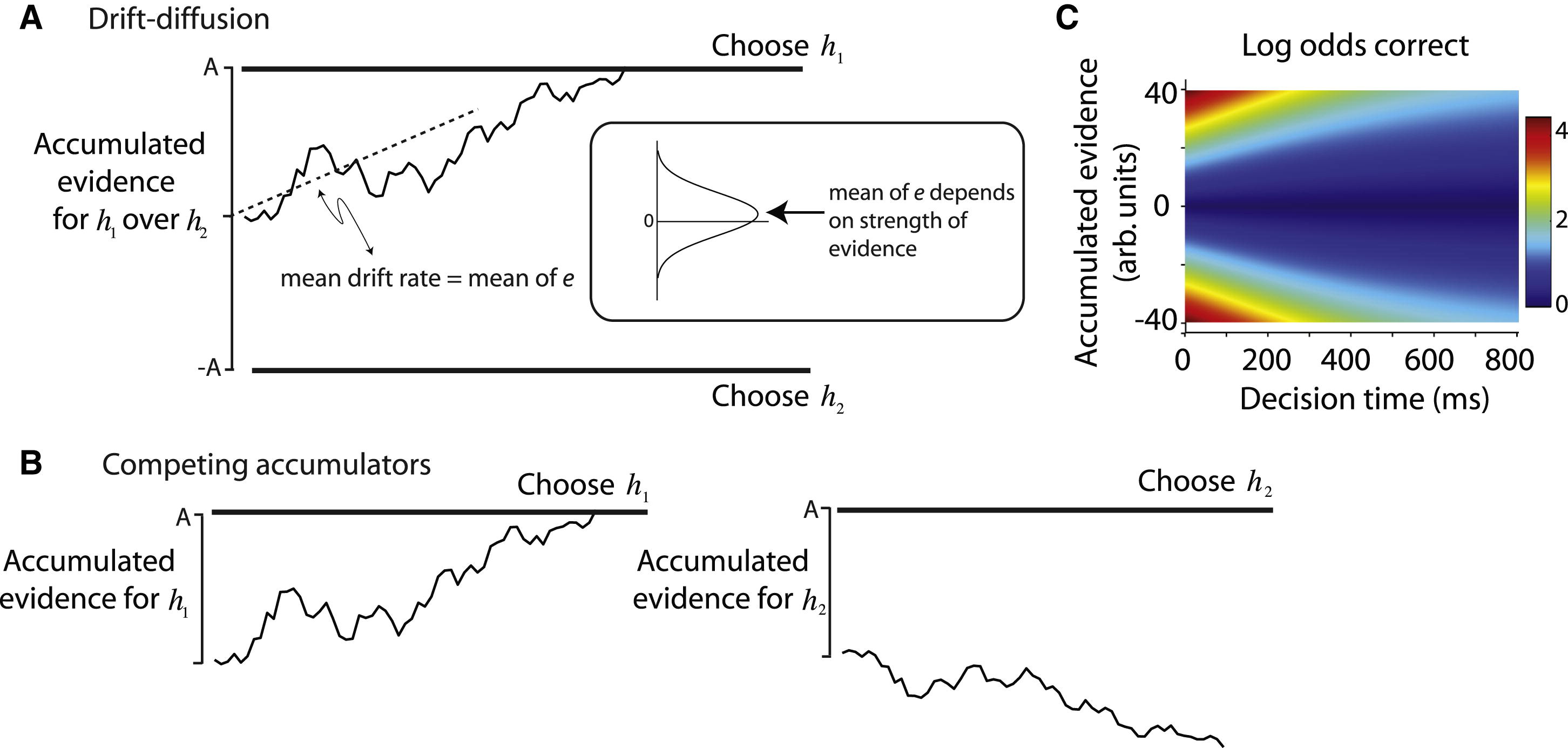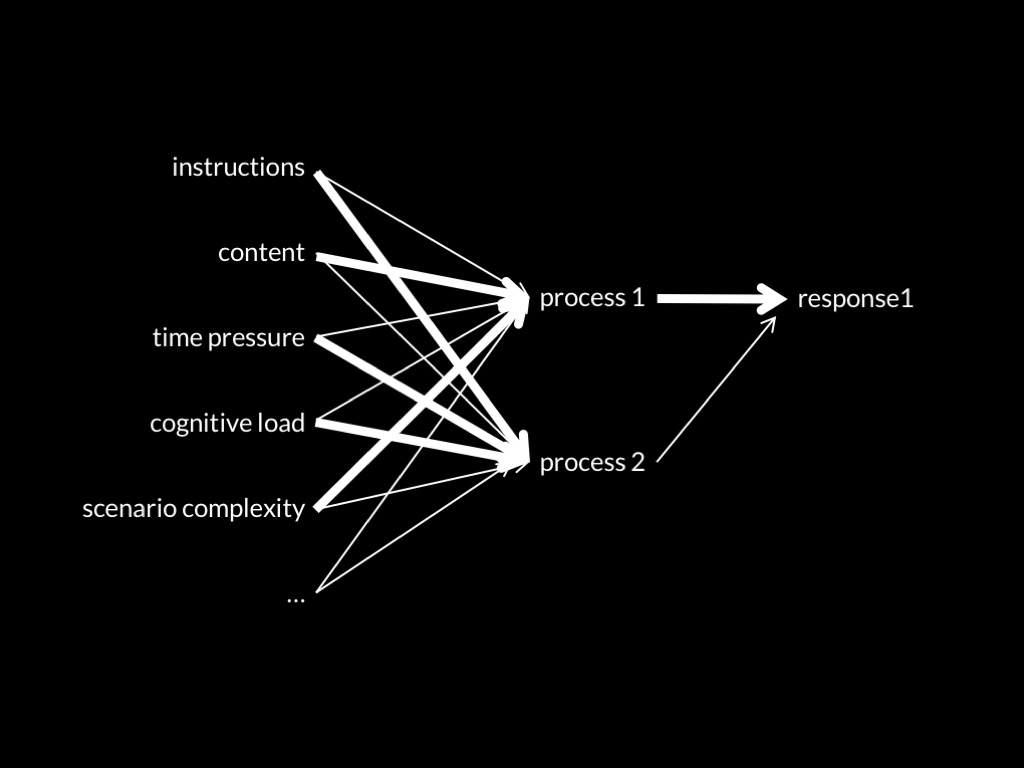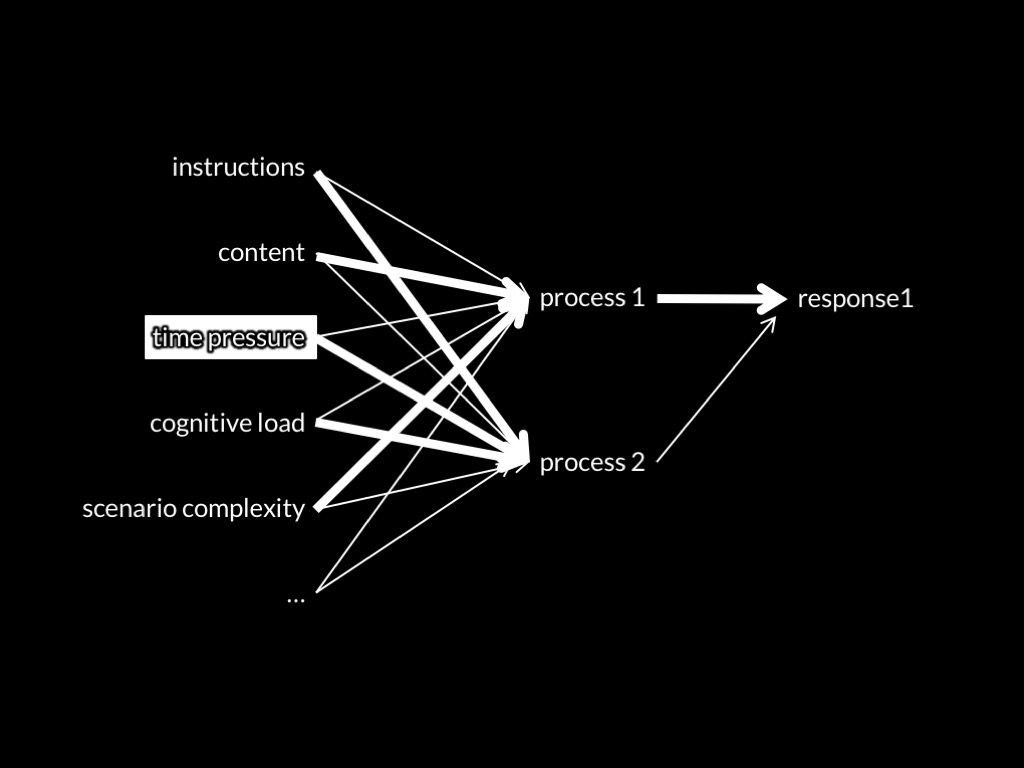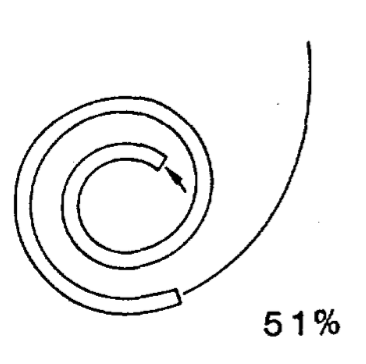Click here and press the right key for the next slide.
(This may not work on mobile or ipad. You can try using chrome or firefox, but even that may fail. Sorry.)
also ...
Press the left key to go backwards (or swipe right)
Press n to toggle whether notes are shown (or add '?notes' to the url before the #)
Press m or double tap to slide thumbnails (menu)
Press ? at any time to show the keyboard shortcuts
Jego
Is a poverty of stimulus argument necessary for advancing a moral innateness theory? I'm not sure what evidence for this argument would look like.
‘There would seem not to be enough ambient information available to account for the functional architecture that minds are found to have’
(Fodor, 1983, p. 35).
Poverty of stimulus argument
- \itemHuman infants acquire X.
- \itemTo acquire X by data-driven learning you'd need this Crucial Evidence.
- \itemBut infants lack this Crucial Evidence for X.
- \itemSo human infants do not acquire X by data-driven learning.
- \itemBut all acquisition is either data-driven or innately-primed learning.
- \itemSo human infants acquire X by innately-primed learning .
compare Pullum & Scholz 2002, p. 18
Poverty of stimulus ingredients
- The Knowledge : Specify what is known
- Evidence of Acquisition : Show that humans do have The Knowledge
- Crucial Evidence : Identify what is indispensable to the learner if The Knowledge is to be learnt
- Evidence of Inaccessibility : show that actual learners do not get the Crucial Evidence
Example where this is done: Lidz, Waxman, & Freedman (2003)
Jego
Is a poverty of stimulus argument necessary for advancing a moral innateness theory? I'm not sure what evidence for this argument would look like.
Baldouin
In how far should we really speak of two independent systems? Couldn’t it also be the case that there is just one cognitive capacity, that is sensitive to time and cognitive load.

Shadlen & Kiani (2013, p. figure 2)




aux. hypothesis: only the slow process ever flexibly and rapidly takes into account differences in the more distal outcomes of an action
Prediction 1: limiting the time available to make a decision will reduce the influence of distal outcomes.


puzzle
Why are moral intuitions sometimes, but not always, a consequence of reasoning from known principles?
Baldouin
In how far should we really speak of two independent systems? Couldn’t it also be the case that there is just one cognitive capacity, that is sensitive to time and cognitive load.
The unreliability then would be gradual, and there is no fast and slow but a range of different speeds?

McCloskey, Caramazza, & Green (1980, p. figure 2D)
why?
because fast processes make it appear so
(Kozhevnikov & Hegarty, 2001)
So does the fast process directly influence the slow judgement?
No. (Or not significantly.)
fast process
-> representational momentum
-> phenomenology of experience
-> thinking about experience
-> (tacit) belief in principles
-> explicit judgement
The fast process provides phenomenal material for slow judgement.
Baldouin
In how far should we really speak of two independent systems? Couldn’t it also be the case that there is just one cognitive capacity, that is sensitive to time and cognitive load.
The unreliability then would be gradual, and there is no fast and slow but a range of different speeds?
Where is the cut of point where we switch from slow to fast or vice versa?


Baldouin
In how far should we really speak of two independent systems? Couldn’t it also be the case that there is just one cognitive capacity, that is sensitive to time and cognitive load.
The unreliability then would be gradual, and there is no fast and slow but a range of different speeds?
Where is the cut of point where we switch from slow to fast or vice versa?
practical questions
Can I expand on a 500-word essay for the 70% essay?
Yes, but change the question!
Must I expand?
No!
How to choose a question for the 70% essay?
There’s a list of pre-approved questions.
There’s an index of puzzles.
Can I make my own question?
Yes, but you must get it approved by me and added to the list.
What support can I get for the 70% essay?
Up to 2 weeks before the deadline: some.
Within 2 weeks of the deadline: none.
more questions?
